|
Books Should Be Free Loyal Books Free Public Domain Audiobooks & eBook Downloads |
|
|
Books Should Be Free Loyal Books Free Public Domain Audiobooks & eBook Downloads |
|
Psychology Books |
|---|
Book type:
Sort by:
View by:
|
By: A Highland Seer | |
|---|---|
 Tea-Cup Reading and Fortune-Telling by Tea Leaves
Tea-Cup Reading and Fortune-Telling by Tea Leaves
Reading the Cup is essentially a domestic form of Fortune-telling to be practiced at home, and with success by anyone who will take the trouble to master the simple rules laid down in these pages: and it is in the hope that it will provide a basis for much innocent and inexpensive amusement and recreation round the tea-table at home, as well as for a more serious study of an interesting subject, that this little guide-book to the science is confidently offered to the public. | |
By: Harry Houdini (1874-1926) | |
|---|---|
 Magician Among the Spirits
Magician Among the Spirits
Houdini, an escape artist and illusionist, became interested later in his life in debunking spiritualists, disbelieving anyone who claimed to have supernatural powers. This was during an era where paranormal phenomena, especially seances, were extremely popular. Although skeptical of their claims, he longed to find a credible source to communicate with family members he had lost. This book chronicles his travels and the many people he spoke with and his observations of their 'powers' and along the way also reveals many of the tricks they employed to deceive their paying customers. - Summary by Phyllis Vincelli | |
By: Johann Gottlieb Fichte (1762-1814) | |
|---|---|
 Destination Of Man
Destination Of Man
Johanne Fichte published The Destination of Man in 1799. It was translated into English in 1846 by Jane Sinnett and then again in 1848 by William Smith. Fichte says his book is designed to "raise [the reader] from the sensuous world, to that which is above sense." Francis Bacon said, in The Advancement of Learning, "the two ways of contemplation are not unlike the two ways of action commonly spoken of by the ancients; the one plain and smooth in the beginning, and in the end impassable; the other rough and troublesome in the entrance, but after a while fair and even... | |
By: John Locke (1632-1704) | |
|---|---|
 Essay Concerning Human Understanding Book II
Essay Concerning Human Understanding Book II
John Locke wrote four essays on human understanding. Here are a few quotes from the book: "I see no reason to believe, that the soul thinks before the senses have furnished it with ideas to think on. The dreams of sleeping men are, as I take it, all made up of the waking man's ideas, though for the most part oddly put together. Can the soul think, and not the man, or a man think, and not be conscious of it? Suppose the soul of Castor separated, during his sleep, from his body, to think apart. Let us suppose too, that it chooses for its scene of thinking the body of another man, v... | |
By: Orison Swett Marden (1850-1924) | |
|---|---|
 Pushing to the Front
Pushing to the Front
Published in 1894, this is the first book by the renowned inspirational author, Dr. Orison Swett Marden. Pushing to the Front is the product of many years of hard work, and marks a turning point in the life of Dr. Marden. He rewrote it following an accidental fire that brought the five-thousand-plus page manuscript to flames. It went on to become the most popular personal-development book of its time, and is a timeless classic in its genre. Filled with stories of success, triumph and the surmounting of difficulties, it is especially well-targeted at the adolescent or young adult... | |
By: Various | |
|---|---|
 American Psychology, 1922-1947
American Psychology, 1922-1947
This is the second of what is intended to be three projects featuring journal articles which chart the development of psychology as an academic discipline in the United States during the twentieth century. This collection includes key texts in the development of behaviourism, neuropsychological testing, the psychology of race and humanist therapeutic psychology. Many thanks to staff at the American Psychological Association, Taylor and Francis and Phi Beta Kappa who have helped us to establish that these papers are public domain for those who live in the United States or countries that recognise the Rule of the Shorter Term. | |
By: A. (Ada) Goodrich-Freer (1865-1931) | |
|---|---|
 The Alleged Haunting of B—— House Including a Journal Kept During the Tenancy of Colonel Lemesurier Taylor
The Alleged Haunting of B—— House Including a Journal Kept During the Tenancy of Colonel Lemesurier Taylor
| |
By: A. (Alphonse) Loisette | |
|---|---|
 Assimilative Memory or, How to Attend and Never Forget
Assimilative Memory or, How to Attend and Never Forget
| |
By: A. Alpheus | |
|---|---|
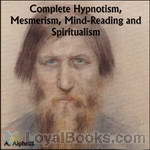 Complete Hypnotism, Mesmerism, Mind-Reading and Spiritualism
Complete Hypnotism, Mesmerism, Mind-Reading and Spiritualism
Written in 1903, just sixty years after the word ‘hypnotism’ was coined, this book explores the contemporary understanding of the nature, uses and dangers of the technique. Hypnotism has been practiced for many centuries, but it was in the mid-to-late nineteenth century that it became a particularly fashionable way to explore the human mind. Although understanding of the subject has evolved considerably over subsequent years, this book remains a fascinating insight into a technique once thought to be at the forefront of medical science. | |
By: A. Medium | |
|---|---|
 Revelations of a Spirit Medium
Revelations of a Spirit Medium
Written anonymously by "a working 'medium' for the past twenty years", this little book was an inspiration for a young Harry Houdini, and also rather hard to find until a facsimile edition was published in 1922, due to all the copies being bought and destroyed by spiritualists. According to the preface, "the most wonderful of the 'medium's' phenomena will be so thoroughly explained and so completely dissected that, after reading this book, you can perform the feats yourself". - Summary by Jordan | |
By: Abraham Myerson (1881-1948) | |
|---|---|
 The Foundations of Personality
The Foundations of Personality
| |
By: Adam Smith (1723-1790) | |
|---|---|
 The Theory of Moral Sentiments (First Edition)
The Theory of Moral Sentiments (First Edition)
“How selfish soever man may be supposed, there are evidently some principles in his nature, which interest him in the fortunes of others, and render their happiness necessary to him, though he derives nothing from it, except the pleasure of seeing it.” (from The Theory of Moral Sentiments) Adam Smith considered his first major book, The Theory of Moral Sentiments, his most important work. Indeed, the tome was a wild success upon its publication, selling out immediately. It has not lost popularity since... | |
By: Alan Edward Nourse (1928-1992) | |
|---|---|
 Second Sight
Second Sight
| |
By: Alexander Roberts (-1620) | |
|---|---|
 A Treatise of Witchcraft
A Treatise of Witchcraft
| |
By: Alexander Sutherland Neill (1883-1973) | |
|---|---|
 A Dominie in Doubt
A Dominie in Doubt
| |
By: Alfred Binet (1857-1911) | |
|---|---|
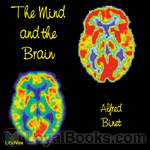 The Mind and the Brain
The Mind and the Brain
Today, almost every layperson understands the concept of intelligence tests and can glibly discuss IQ scores. In fact, these have become so common in the popular imagination that magazines, websites and pop quizzes offer to assess your intelligence at the drop of a hat! In this scenario, it's interesting to recall the very first person who proposed the concept of measurable intelligence. Alfred Binet was basically a clinical psychologist whose wide-ranging interests in learning difficulties faced by school children prompted him to undertake extensive studies in human cognition, psychology, learning and behavior... | |
By: Alfred Korzybski (1879-1950) | |
|---|---|
 Manhood of Humanity.
Manhood of Humanity.
| |
By: Annie Wood Besant (1847-1933) | |
|---|---|
 Occult Chemistry Clairvoyant Observations on the Chemical Elements
Occult Chemistry Clairvoyant Observations on the Chemical Elements
| |
By: Anonymous | |
|---|---|
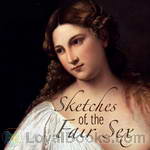 Sketches Of The Fair Sex
Sketches Of The Fair Sex
Sketches of the fair sex, in all parts of the world. To which are added rules for determining the precise figure, the degree of beauty, the habits, and the age of women, notwithstanding the aids and disguise of dress. It is our design to present a pleasing and interesting miscellany, which will serve to beguile the leisure hour, and will at the same time couple instruction with amusement. We have used but little method in the arrangement: Choosing rather to furnish the reader with a rich profusion... | |
By: Aristotle (384 BCE-322 BCE) | |
|---|---|
 Parva Naturalia
Parva Naturalia
Parva Naturalia [the "short treatises on nature" (a conventional Latin title first used by Giles of Rome)] is a collection of books by Aristotle, which discuss natural phenomena involving the body and the soul. The books are as follows:I - On Sensation and the SensibleII - On Memory and RecollectionIII - On Sleeping and WakingIV - On DreamsV - On Prophecy in SleepVI - On Longevity and Shortness of LifeVII - On Youth and Old Age, Life and Death VIII - On Respiration | |
By: Arnold Bennett (1867-1931) | |
|---|---|
 Mental Efficiency and Other Hints to Men and Women
Mental Efficiency and Other Hints to Men and Women
Mental Efficiency and Other Hints to Men and Women is one of the many self help books that Bennett wrote, the most famous of these being How to Live 24 Hours a Day. It is highly readable, amusing and offers wisdom in an extremely palatable form. Bennett's gift for analysis and his knowledge of philosophy and psychology make this book a valuable treasure trove of handy hints to improve our lives. Though it was first published in 1911, it remains as relevant, wise and useful as it did more than a hundred years ago... | |
 The Human Machine
The Human Machine
Bennett asks us to consider our brains as the most wonderful machine, a machine which is the only thing in this world that we can control. As he writes: "I am simply bent on calling your attention to a fact which has perhaps wholly or partially escaped you -- namely, that you are the most fascinating bit of machinery that ever was."As ever, his prose is honeyed, his thoughts inspired, and his advice as relevant today as when it was written. (Introduction by Ruth Golding) | |
By: Arthur Edward Waite (1857-1942) | |
|---|---|
 Devil-Worship in France or The Question of Lucifer
Devil-Worship in France or The Question of Lucifer
| |
By: Augustin Calmet (1672-1757) | |
|---|---|
 The Phantom World or, The philosophy of spirits and apparitions
The Phantom World or, The philosophy of spirits and apparitions
| |
By: Ayn Rand (1905-1982) | |
|---|---|
 Anthem
Anthem
The title 'Anthem' is derived as an anthem to sense of self and self-governing thoughts. Anthem is a story of Equality 7-2521 who is a young man living in some unspecified future time and place. In this future era freedom and individual rights have been eradicated. The starring character of the novel is an inquisitive street cleaner. He lives in a society where people have lost their knowledge of individualism, to the extreme that people do not know words like 'I' or 'mine'. All the people live and work for their livelihood in collective groups, along with the people with power, namely the 'Councils'... | |
By: Barbara Constant | |
|---|---|
 The Sound of Silence
The Sound of Silence
| |
By: Baron Paul Henri Thiry d'Holbach (1723-1789) | |
|---|---|
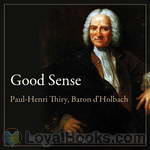 Good Sense
Good Sense
In 1770, Baron D'Holbach published his masterpiece, "Systeme de la Nature", which for a long time passed as the posthumous work of M. de Mirabaud. That text-book of "Atheistical Philosophy" caused a great sensation, and two years later, 1772, the Baron published this excellent abridgment of it, freed from arbitrary ideas; and by its clearness of expression, facility, and precision of style, rendered it most suitable for the average student. This text is based on an undated English translation of "Le Bon Sens" published c. 1900. The name of the translator was not stated. | |
By: Belle M. Wagner | |
|---|---|
 Within the Temple of Isis
Within the Temple of Isis
| |
By: Bernard Glueck (1883-) | |
|---|---|
 Studies in Forensic Psychiatry
Studies in Forensic Psychiatry
| |
By: Bertrand Russell (1872-1970) | |
|---|---|
 Analysis of Mind
Analysis of Mind
A neat work on philosophy of mind by the 20th century analytic philosopher Bertrand Russell. | |
By: Booker T. Washington (1856-1915) | |
|---|---|
 Putting the Most Into Life
Putting the Most Into Life
The chapters in this little book were originally part of a series of Sunday Evening Talks given by the Principal to the students of the Tuskegee Normal and Industrial Institute. They have been recast from the second to the third person, and many local allusions have been cut out. They are now sent out, in response to repeated requests, to a larger audience than that to which they were first spoken. - Summary by Booker T. Washington | |
By: Carl Gustav Jung (1875-1961) | |
|---|---|
 Studies in Word-Association
Studies in Word-Association
Following his Psychology of the Unconscious Processes, this book is a series of papers compiled under the direction of Dr. Carl Jung, also known as the founder of psychoanalysis. It records research related to the association method conducted on persons with and without psychological conditions. Jung's work on association among "normal" individuals formed the basis of psychological types. - Summary by Cao Yuqing | |
 Psychological Types: Or, the Psychology of Individuation
Psychological Types: Or, the Psychology of Individuation
Ever wondered if there is any "theoretical basis" for the well-known Myers–Briggs Type Indicator Personality Test? In this groundbreaking work of typology, Jung proposes three key dichotomies - extraversion/introversion, sensation/intuition, as well as thinking/feeling - as an attempt to reconcile the differing theories of Sigmund Freud and Alfred Adler. - Summary by Cao Yuqing | |
 Psychology of the Unconscious
Psychology of the Unconscious
Jung says in his subtitle that this work is a study of the transformations and symbolisms of the libido and a contribution to the history of the evolution of thought. | |
 Collected Papers on Analytical Psychology
Collected Papers on Analytical Psychology
A collection of classical writings of Swiss psychologist Carl G. Jung, an influential thinker and the founder of analytical psychology. Written at intervals over a span of fourteen years, these selected articles and pamphlets contain many fascinating ideas that have become widely accepted psychological concepts nowadays, but had just started to develop at the time when the book was written. For instance, this is where Dr. Jung's ideas of introversion and extroversion, a contribution of vital importance to psychology, appeared for the very first time. Other topics explored include the concept of the unconscious, the study of psychological types, and the psychology of dreams. | |
 Theory of Psychoanalysis
Theory of Psychoanalysis
Jung says the following in his introduction: "in these lectures I have attempted to reconcile my practical experiences in psychoanalysis with the existing theory, or rather, with the approaches to such a theory." He goes on to say, "Here is my attitude towards those principles which my honored teacher Sigmund Freud has evolved from the experience of many decades." Some topics considered in this light are infantile sexuality, the conception of the libido, the unconscious, the dream, repression, and the etiology of neuroses. | |
By: Cesare Lombroso (1835-1909) | |
|---|---|
 Crime, Its Causes and Remedies
Crime, Its Causes and Remedies
Published as the third volume in the Modern Criminal Science Series, Cesare Lombroso, renowned Italian criminologist, collected a wealth of information regarding the incidence, classification, and causes of crime. Crime calendars, the geography of crime, unusual events and circumstances leading to more frequent crime, political motivations and associations of criminal enterprise and an assessment of the real value and effectiveness of prisons and reform programs are all included in this three part volume. - Summary by Leon Harvey | |
 Man of Genius
Man of Genius
Famous criminologist, anthropologist, and psychiatrist, Dr Lombroso, investigated the memetic anecdotal belief that genius is associated with degenerative symptoms, or may even be a version of insanity, and presented his findings as a fascinating and controversial theory that the creative and imaginative celebrities throughout history have also displayed what he termed as "atavistic" symptoms, or defects resembling what is commonly seen in the unwell. Citations of evidence are drawn from a rich variety... | |
By: Charles A. (Charles Abram) Ellwood (1873-1946) | |
|---|---|
 Sociology and Modern Social Problems
Sociology and Modern Social Problems
| |
By: Charles B. Towns (1862-1947) | |
|---|---|
 Habits that Handicap
Habits that Handicap
Habits that Handicap is one of three novels about alcholoism and drug addiction written by Charles B. Towns. Towns was an expert on alcoholism and drug addiction who helped draft drug control legislation in the United States during the early 20th century. He also founded the Towns Hospital in New York City, which aimed at drying out the well-to-do patient. | |
By: Charles Godfrey Leland (1824-1903) (1824-1903) | |
|---|---|
 The Mystic Will
The Mystic Will
This book presents a method of developing and strengthening the faculties of the mind, through the awakened will, by a simple, scientific process possible to any person of ordinary intelligence | |
By: Charles Mackay (1814-1889) | |
|---|---|
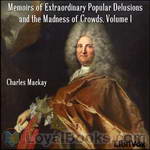 Memoirs of Extraordinary Popular Delusions and the Madness of Crowds
Memoirs of Extraordinary Popular Delusions and the Madness of Crowds
The book chronicles and vilifies its targets in three parts: “National Delusions”, “Peculiar Follies”, and “Philosophical Delusions”.The subjects of Mackay’s debunking include alchemy, beards (influence of politics and religion on), witch-hunts, crusades and duels. Present day writers on economics, such as Andrew Tobias, laud the three chapters on economic bubbles. | |
 Memoirs of Extraordinary Popular Delusions
Memoirs of Extraordinary Popular Delusions
| |
By: Charles Waddell Chesnutt (1858-1932) | |
|---|---|
 Colonel's Dream
Colonel's Dream
In this novel, Chesnutt described the hopelessness of Reconstruction in a post-Civil War South that was bent on reestablishing the former status quo and rebuilding itself as a region of the United States where new forms of "slavery" would replace the old. This novel illustrated how race hatred and the impotence of a reluctant Federal Government trumped the rule of law, ultimately setting the stage for the rise of institutions such as Jim Crow, lynching, chain gangs and work farms--all established with the intent of disenfranchising African Americans. | |
By: Charlotte Perkins Gilman (1860-1935) | |
|---|---|
 The Yellow Wallpaper
The Yellow Wallpaper
| |
By: Clara | |
|---|---|
 Cupology How to Be Entertaining
Cupology How to Be Entertaining
| |
By: Clarence Darrow (1857-1938) | |
|---|---|
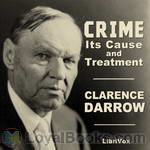 Crime: Its Cause and Treatment
Crime: Its Cause and Treatment
Clarence Darrow was an American lawyer. He remains notable for his wit and agnosticism, which marked him as one of the most famous American lawyers and civil libertarians.In this book, Darrow expands on his lifelong contention that psychological, physical, and environmental influences—not a conscious choice between right and wrong—control human behavior. To my ears (the reader's), the author has a rather simplistic behaviourist view of human behaviour, but he argues his position with wonderful clarity... | |
By: Claude Fayette Bragdon (1866-1946) | |
|---|---|
 Four-Dimensional Vistas
Four-Dimensional Vistas
| |
By: Cordwainer Smith (1913-1966) | |
|---|---|
 Psychological Warfare
Psychological Warfare
Psychological warfare and propaganda have been used extensively in warfare since the earliest times. This book explores the functions, limitations, types, and history of psychological warfare through 1953. It was written by Paul Myron Anthony Linebarger, a US Army officer, a noted East Asia scholar, and an expert in psychological warfare, also known by the pseudonym Cordwainer Smith as a science fiction author. Linebarger had extensive experience with the practice and implementation of psychological warfare techniques in the field through his work with the Office of War Information, the Operation Planning and Intelligence Board, and the CIA... | |
By: D. H. Lawrence (1885-1930) | |
|---|---|
 Fantasia of the Unconscious
Fantasia of the Unconscious
| |
By: David Walker (1796-1830) | |
|---|---|
 Walker's Appeal
Walker's Appeal
The Appeal grabbed readers’ attention in as dramatic a manner as Walker could have possibly imagined. In her book, Maria W. Stewart and the Roots of Black Political Thought, Kirsten Waters writes about how the pamphlet itself was viewed as dangerous by pro-slavery forces, while Walker actively worked to get his text in the hands of Black readers. He did not direct his writing to White audiences, and in the third edition added a special message to Black readers, saying that: It is expected that... | |
By: Delmer Eugene Croft | |
|---|---|
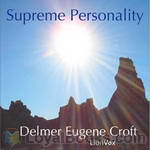 Supreme Personality
Supreme Personality
Life is self-realization. Every birth is divine. We are born anew every morning. My wish is that you may catch the gleam, be freed from limitations and enter upon your boundless possibilities. To bring you into the throne-room of your being, that you may awaken in self-realization, is why I have prepared this course of lessons. Should you give five minutes a day to them, in a year you will know the joy there is in Life, in Power, and in Service. (from the text) | |
By: E. Katherine (Emily Katherine) Bates | |
|---|---|
 Seen and Unseen
Seen and Unseen
| |
By: E. W. (Ernest Watson) Burgess (1886-1966) | |
|---|---|
 Introduction to the Science of Sociology
Introduction to the Science of Sociology
| |
By: Edgar Thurston (1855-1935) | |
|---|---|
 Omens and Superstitions of Southern India
Omens and Superstitions of Southern India
This book deals mainly with some aspects of what may be termed the psychical life of the inhabitants of the Madras Presidency, and the Native States of Travancore and Cochin. | |
By: Edith Wharton (1862-1937) | |
|---|---|
 The Touchstone
The Touchstone
Stephen Glennard's career is falling apart and he desperately needs money so that he may marry his beautiful fiancee. He happens upon an advertisement in a London magazine promising the prospect of financial gain. Glennard was once pursued by Margaret Aubyn, a famous and recently deceased author, and he still has her passionate love letters to him. Glennard removes his name from the letters and sells them, making him a fortune and building a marriage based on the betrayal of another. | |
By: Edward Prime-Stevenson (1868-1942) | |
|---|---|
 The Square of Sevens An Authoritative Method of Cartomancy with a Prefatory Note
The Square of Sevens An Authoritative Method of Cartomancy with a Prefatory Note
| |
By: Edward Summers Squier | |
|---|---|
 Etiquette Made Easy
Etiquette Made Easy
"A complete dictionary [sic] containing the right information for any and all occasions." - Summary by KevinS | |